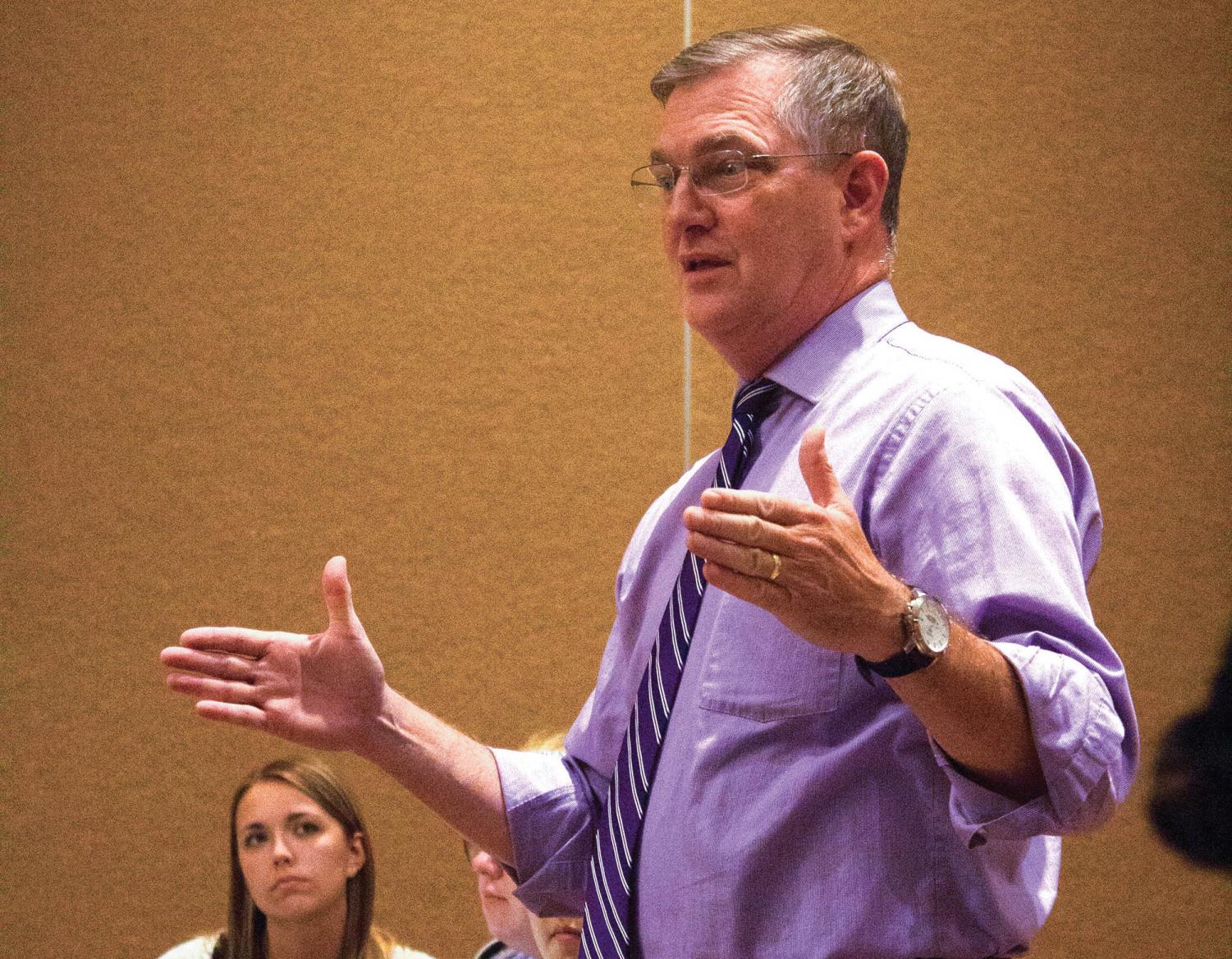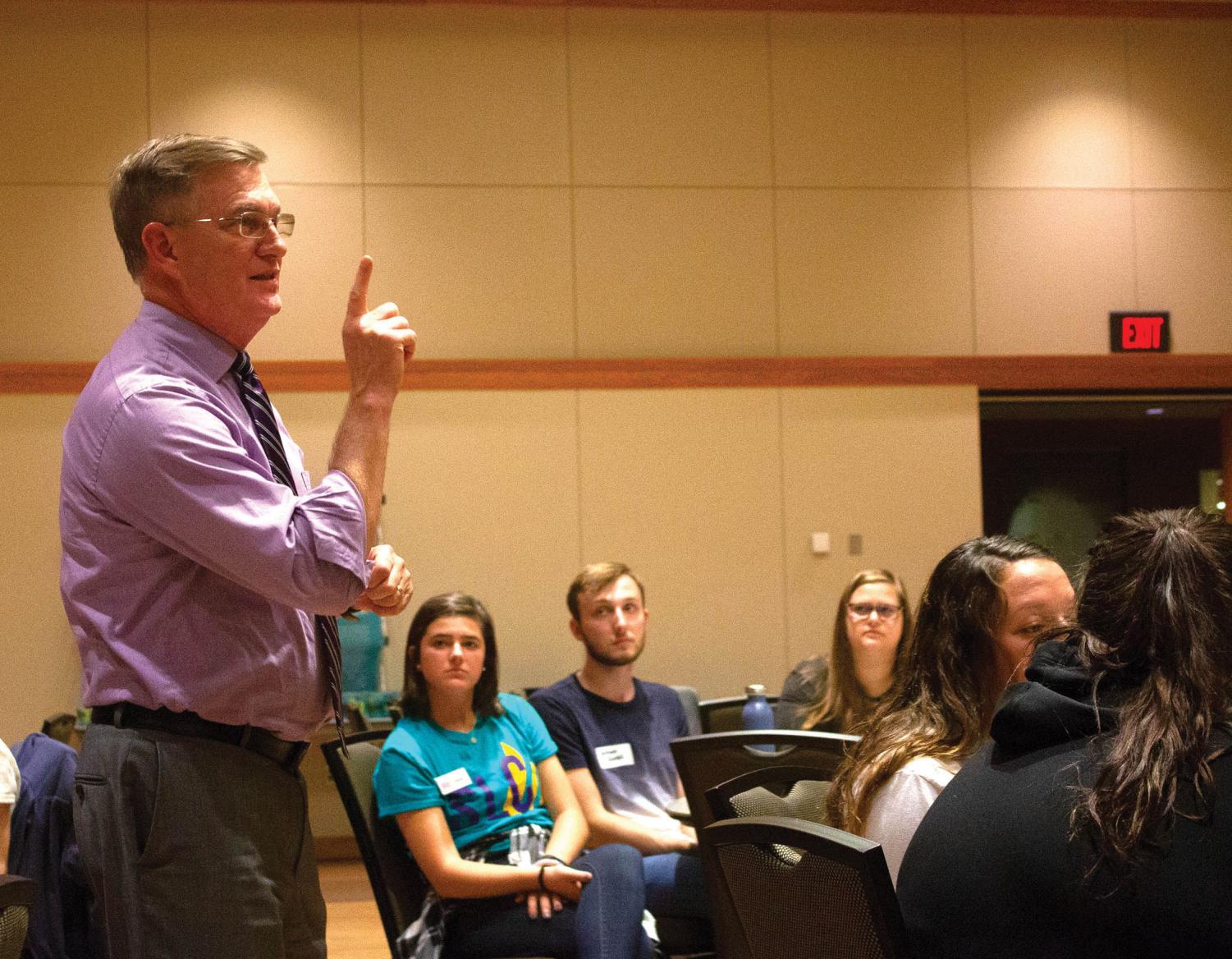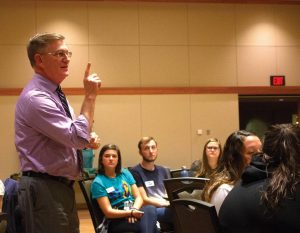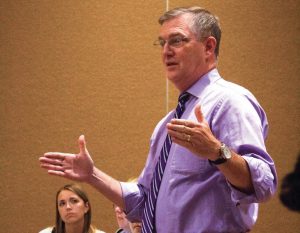President Nook discusses leadership in everyday life
Sep 27, 2018
When he isn’t working, UNI President Mark Nook can be found enjoying the outdoors or visiting his grandkids.
These are some of the ways Nook alleviates stress after making leadership decisions that could impact around 12,000 UNI students.
In order to make these decisions, Nook follows several principles which he shared during the “Leadership in Everyday Life” workshop hosted by the Service and Leadership Council (SLC) on Monday, Sept. 24.
“Always sit down and think about having a set of principles for your leadership,” said Nook.
Whether in the workplace or one’s own life, Nook said people should have values that they never violate, regardless of the situation that arises.
When working with large and diverse groups, Nook said conflicts can make it difficult to lead. He said that listening is an important skill when dealing with adversity. During the decision-making process, he tries to reflect on what others are telling him in order to make the best possible decision.
“This university has over 18,000 employees,” Nook said. “When it comes down to it, I’m the boss of all of them. It’s an extremely humbling thought. I try to take a few minutes to see what’s going on in their lives.”
Understanding the work and lives of others is a key aspect of Nook’s leadership style. He said that he prefers emphasizing the accomplishments of others over his own. Nook believes those in leadership roles should take responsibility for the problems within the group they are leading. By planning and putting systems in place, Nook tries to ensure that negative events happen infrequently.
Putting a spotlight on the achievements of others is a strategy some student organizations are employing.
“I think a lot of the leaders in organizations are doing a great job right now,” said Morgan Johnston, senior elementary education major and SLC Council co-president. “They are working on interacting with other organizations and setting up events where organizations collaborate, thus helping to make a larger impact on campus and bring in more attendees.”
Commitment and dedication were two other aspects of leadership Nook discussed during the workshop.
“I had no connection to UNI until they hired me about two years ago,” Nook said. “My wife and I decided that if I was selected, it was an all-in decision. I’m here to make a difference in the university. I’m here to make a difference in your lives. I’m here to serve you.”
During the question-and-answer portion of the evening, Nook emphasized the importance of experience when it comes to leadership positions. In order to deal with criticism from others, Nook said he communicates problems as clearly as possible.
“One principle that I have is transparency,” Nook said. “If I know it, you’re going to know it.”
Lastly, Nook handed out copies of his private stationary and encouraged the audience to write a letter to someone who has made a difference in their lives.
“We live in a Twitter, email, Facebook and Snapchat world,” Nook said. “Sending off an email is easy and everybody knows it. Sending off a ‘snap’ is easy; that’s why they call it Snapchat. What happens if you get a letter or a postcard? What does that say if somebody took the time […] to find paper, a pencil and a pen, an envelope and a stamp, and didn’t just sit down and mindlessly type a few characters into a computer where the words aren’t even spelled right? Not even all the letters are there cause you’re limited to 140 characters.”
“So, here’s the deal,” Nook continued. “I want you to think of somebody in your life. It could be your parents, but that’s the easy way out, right? Think of somebody who made a difference in your life—maybe today, maybe last week, maybe five years ago when you were in eighth grade. I want you to thank them, put the name and address on the envelope, and we’ll send it.”











